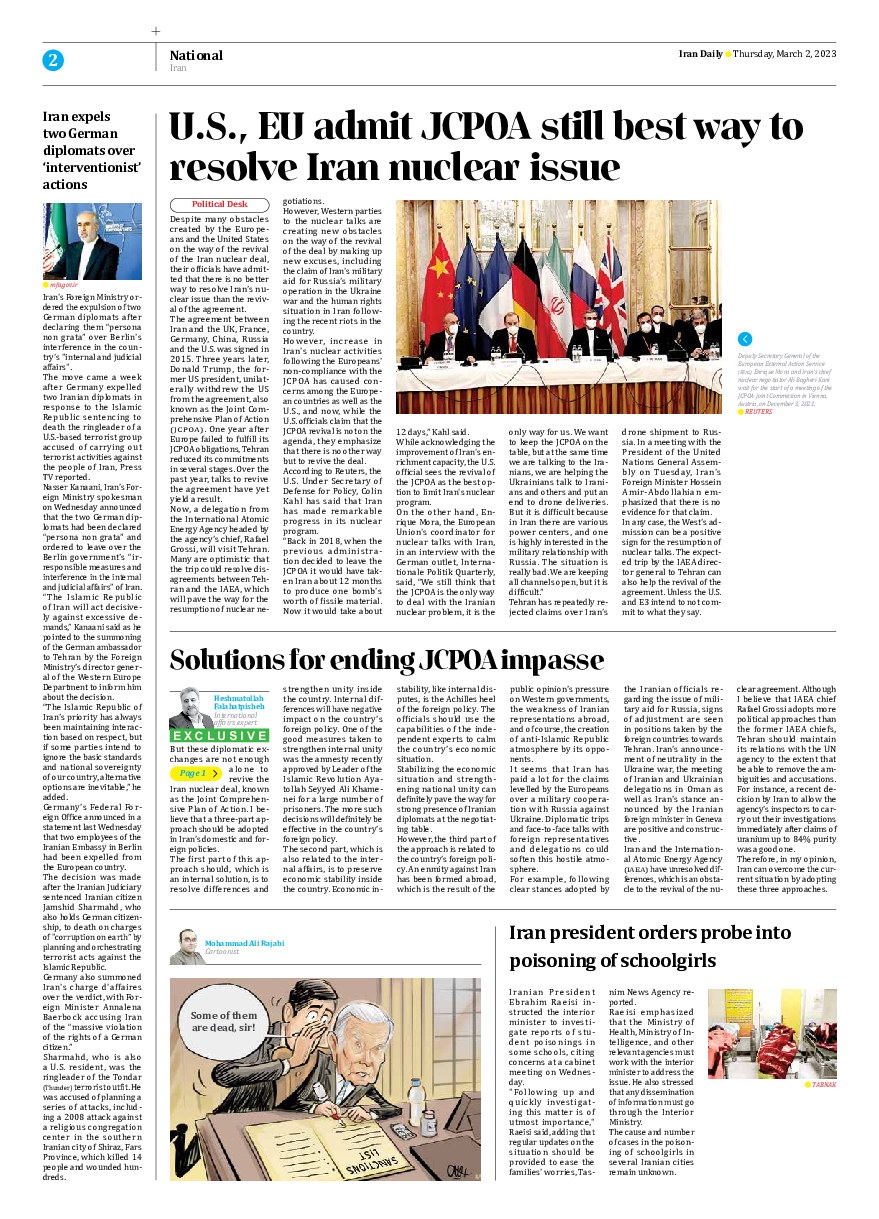
U.S., EU admit JCPOA still best way to resolve Iran nuclear issue
Despite many obstacles created by the Europeans and the United States on the way of the revival of the Iran nuclear deal, their officials have admitted that there is no better way to resolve Iran’s nuclear issue than the revival of the agreement.
The agreement between Iran and the UK, France, Germany, China, Russia and the U.S. was signed in 2015. Three years later, Donald Trump, the former US president, unilaterally withdrew the US from the agreement, also known as the Joint Comprehensive Plan of Action (JCPOA). One year after Europe failed to fulfill its JCPOA obligations, Tehran reduced its commitments in several stages. Over the past year, talks to revive the agreement have yet yield a result.
Now, a delegation from the International Atomic Energy Agency headed by the agency’s chief, Rafael Grossi, will visit Tehran. Many are optimistic that the trip could resolve disagreements between Tehran and the IAEA, which will pave the way for the resumption of nuclear negotiations.
However, Western parties to the nuclear talks are creating new obstacles on the way of the revival of the deal by making up new excuses, including the claim of Iran's military aid for Russia’s military operation in the Ukraine war and the human rights situation in Iran following the recent riots in the country.
However, increase in Iran's nuclear activities following the Europeans’ non-compliance with the JCPOA has caused concerns among the European countries as well as the U.S., and now, while the U.S. officials claim that the JCPOA revival is not on the agenda, they emphasize that there is no other way but to revive the deal.
According to Reuters, the U.S. Under Secretary of Defense for Policy, Colin Kahl has said that Iran has made remarkable progress in its nuclear program.
“Back in 2018, when the previous administration decided to leave the JCPOA it would have taken Iran about 12 months to produce one bomb's worth of fissile material. Now it would take about 12 days,” Kahl said.
While acknowledging the improvement of Iran's enrichment capacity, the U.S. official sees the revival of the JCPOA as the best option to limit Iran's nuclear program.
On the other hand, Enrique Mora, the European Union's coordinator for nuclear talks with Iran, in an interview with the German outlet, Internationale Politik Quarterly, said, “We still think that the JCPOA is the only way to deal with the Iranian nuclear problem, it is the only way for us. We want to keep the JCPOA on the table, but at the same time we are talking to the Iranians, we are helping the Ukrainians talk to Iranians and others and put an end to drone deliveries. But it is difficult because in Iran there are various power centers, and one is highly interested in the military relationship with Russia. The situation is really bad. We are keeping all channels open, but it is difficult.”
Tehran has repeatedly rejected claims over Iran’s drone shipment to Russia. In a meeting with the President of the United Nations General Assembly on Tuesday, Iran's Foreign Minister Hossein Amir-Abdollahian emphasized that there is no evidence for that claim.
In any case, the West’s admission can be a positive sign for the resumption of nuclear talks. The expected trip by the IAEA director general to Tehran can also help the revival of the agreement. Unless the U.S. and E3 intend to not commit to what they say.







